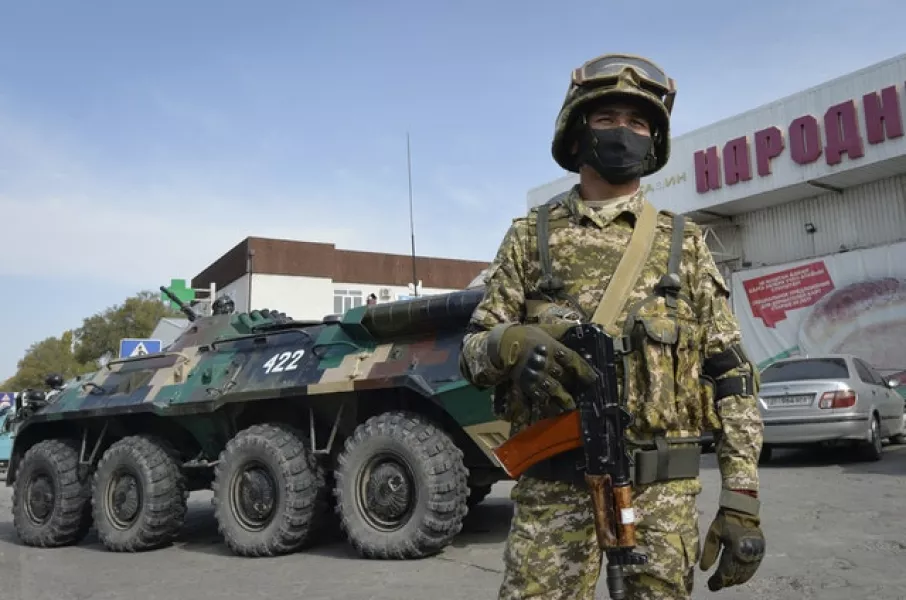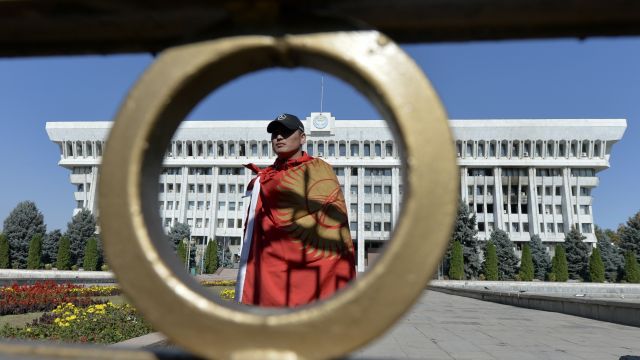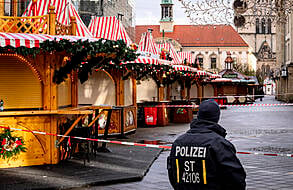President Sooronbai Jeenbekov signed a decree appointing politician Sadyr Zhaparov as the new prime minister just a day after refusing to do so over concerns of whether he was legitimately nominated to the post by the country’s parliament.
Mr Zhaparov, a former politician who was freed from jail during last week’s protests, earlier told his supporters that the president was ready to resign.
Mr Zhaparov was quoted by Kyrgyz media as saying at a news conference that he will continue pushing for Mr Jeenbekov’s resignation, which was “the people’s demand”.
Several hundreds of his supporters gathered in Bishkek on Wednesday, despite the state of emergency and a ban on rallies, and demanded that Mr Jeenbekov step down.

Mr Jeenbekov so far has not commented on the demands to resign.
According to his office, he met with Mr Zhaparov and the parliamentary speaker on Wednesday and “stressed that he is always ready for a dialogue … for the sake of stability and development of the county”.
The parliament nominated Mr Zhaparov as the new prime minister once again on Wednesday, after a similar vote on Saturday, which was challenged by some politicians.
They said the legislators did not have a quorum to make the decision.
In light of the accusations, Mr Jeenbekov refused to sign the decree confirming Mr Zhaparov’s appointment and asked the parliament to hold another vote.
“In order to maintain and strengthen stability in the country, all our decisions need to be legitimate and not be questioned,” Mr Jeenbekov said Tuesday at a meeting with Mr Zhaparov.
Kyrgyzstan, a country of 6.5 million people located on the border with China, plunged into chaos last week after mass protests erupted the day after a parliamentary election appeared to show parties connected to the ruling elite winning.
Protesters stormed and seized government buildings, looting some offices, and the Central Election Commission responded by nullifying the October 4 balloting.

As the unrest continued, opposition groups announced plans to form a new government and oust Mr Jeenbekov, who faced calls from protesters to resign.
Mr Jeenbekov said he may consider stepping down after the political situation in the country stabilises, and declared a state of emergency in the country’s capital, Bishkek, in a bid to end the turmoil.
Authorities deployed troops to Bishkek over the weekend and introduced a curfew.
The move eased tensions in the city, where residents feared a wave of looting that accompanied previous uprisings and began forming vigilante groups to protect their property.
Stores and banks that were shut last week have reopened for business.
The turmoil marks the third time in 15 years that demonstrators have moved to oust a government in Kyrgyzstan, one of the poorest nations to emerge from the former Soviet Union.
As in the uprisings that ousted Kyrgyz presidents in 2005 and 2010, the current protests have been driven by clan rivalries that shape the country’s politics.







